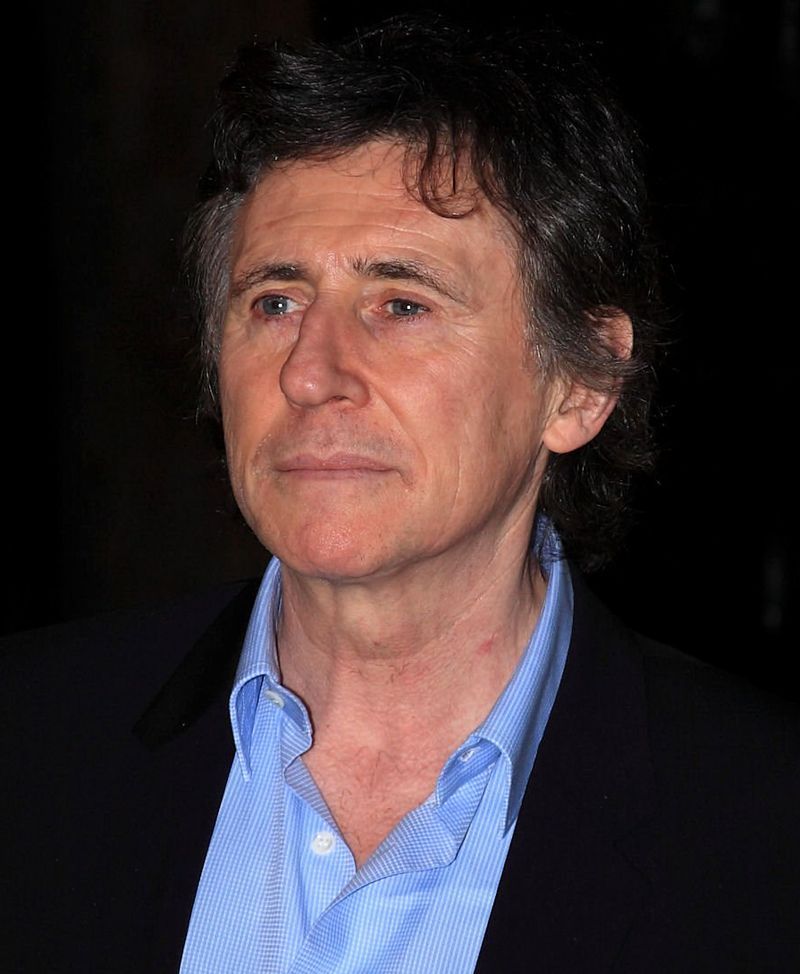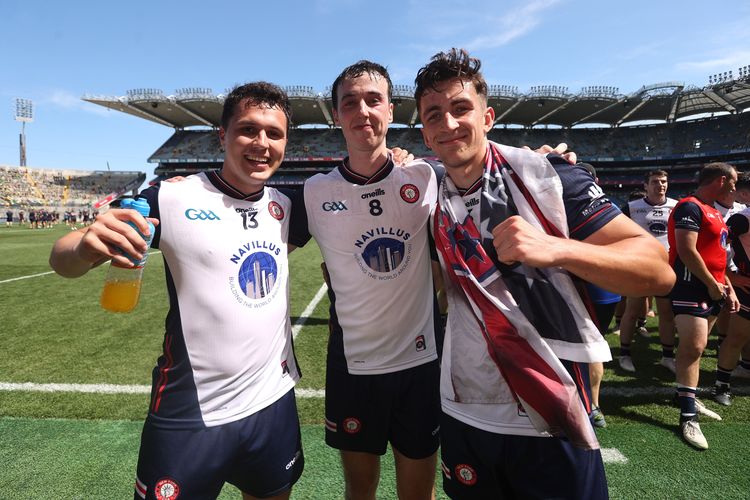Gabriel Byrne’s recent Broadway play "Walking With Ghosts" deals with the actor’s life growing up in Dublin as the eldest of six children in a working-class family.
It is a dramatic memoir of his young years, dealing impressively with his early school and church experiences before moving on to heartbreaking family tragedies and his own successful battle with alcoholism.
At age eleven, in the early 1960s, Byrne was recruited as a likely candidate for the Catholic priesthood by some order with a preparatory junior seminary in England. There, he liked studying Latin and was lauded by his teacher as a possible future classical scholar.
In one of the high points of the play, the Latin teacher invited him to his room for a chat. The priest questioned him about his sexual propensities while grooming him for grotesque sexual molestation which occurred on that day.
In a poignant scene from a later point in his life, Byrne speaks on the phone with the aging priest-molester. He asks him if he remembers the Irish boy that he called his best Latin student.
Predictably, the priest reverted to empty apologetic talk about age and forgetfulness. Many in the theatre audience felt that Gabriel would cut loose and lambast him for his scurrilous actions against him as a boy, but he explained that in talking to the priest, the old feelings of powerlessness and humiliation returned. Yelling at his tormentor would not ease the psychic sting of diminishment that is still embedded in his memory. So, he said a weak goodbye and hung up.
In the year 2000, the Commission to Inquire into Child Abuse was established by the Dublin government to investigate the abuse of children in state institutions. The conclusion of that report, released in May 2009, asserted that starting back in the 1940s, many children in these industrial “schools” were subjected to systematic and sustained physical, sexual and emotional abuse.
These institutions were run by religious orders where the predators were protected by their religious superiors. The buildings, scattered throughout Ireland, were cauldrons of vice and misery where children were regularly heard at night crying out in pain and terror.
The equivalent treatment was meted out to girls in the hated and disreputable Magdalene Laundries where allegedly troubled girls were disrespected and diminished, although with far less use of sexual degradation.
These places proclaim a serious negative commentary on the culture that tolerated this awful behavior. What did these brothers and priests and nuns learn in their mandated novitiate years when they were engaged in studying the Christian approach to the great moral issues? Respect for others is a cornerstone of the Judaeo-Christian belief system. “Whatever you do to the least of my brethren that you do unto me” looms large in Christ’s teaching.
Where were the learned theologians, or even the bishops with a sacred mandate to care for the poor? What were they engaged with that was more important than responding to the nocturnal lamentations of the children? Surely a few of them or some conscientious priests could have raised a cry about the plight of the poor kids who had nobody to speak for them.
Irish psychologist Marie Keenan argues that abusive priests and brothers are not isolated monsters but must be seen as products of a system of human and psychological formation that fixated them at an adolescent level of sexual development.
In a 1946 trip to his native Ireland, Fr. Edward Flanagan of "Boys Town" fame toured some of these so-called reform schools and named them a “scandal, un-Christlike and wrong.” He described them as “a disgrace to the nation.”
Minister for Justice Gerald Boland dismissed his concerns in a harsh statement in the Dail saying that “he was not disposed to take any notice of what Flanagan said.” There is no indication that Fr. Flanagan’s serious concerns even reached the agenda of a bishops’ meeting in Maynooth.
Sociologists point to the deep class structure of Irish society as their perspective on the source of the widespread abuse. The kids at the bottom of the economic pecking order had nobody on their side. Their families had no power. The wider Irish society mostly looked down on the people at the poorest end. Somehow their misfortune was deemed their own fault.
There were industrial schools in Northern Ireland but the kids fared a little better there because the British school inspectorate demanded some humane standards in the treatment of the boys. The Department of Education inspectors in the South showed no sensitivity to the plight of the youngsters.
Recent reports from elite fee-paying Irish schools reveal that the children of the well-to-do were not exempt from clerical predators all over Ireland.
Blackrock College, a high school for the privileged where the Holy Ghost Fathers (now called the Spiritans) ruled, qualifies as a den of iniquity. The reputation of this college and the other eight fee-paying schools that this disgraced order owns is now consigned to a dark corner of Irish life.
Over three hundred boys, former students, have registered as victims of abuse in Spiritan schools, and so far the. Spiritans have paid out over 5.7 million euros in settlements to damaged adults. Fr. Kelly, the current Spiritan provincial, was asked if there was a pedophile ring of priests operating out of Blackrock College in the 1970s. He responded that he couldn’t say for sure one way or the other.
The reason that this child abuse issue has re-emerged in Ireland in the last month centers on a radio program where two brothers, Mark and David Ryan, told of their repeated abuse by a number of priests when they attended Blackrock and its feeder school, Willow Park. The Spiritans apologized and confessed that they had credible reports from over 240 past-pupils from their schools claiming sexual abuse when they were in their care.
Within a few days of the radio program sixty more allegations of Spiritan abuse emerged and the Sexual Crime Management Unit of the Gardai registered six new complaints during the first week.
People asked about the other spiritual keepers of exclusive fee-paying schools and the following information was released. The Jesuits, famous for their elitist colleges, Belvedere in Dublin, Clongowes Wood in Kildare and Crescent College in Limerick, admitted 149 allegations against 43 of their members. They have parted with 7.4 million euros in compensation at this time.
Vincentians, who own the exclusive Castleknock College in Dublin, have heard from 45 past pupils alleging abuse and, so far, have paid out 1.4 million. The Franciscans are dealing with 124 allegations of sexual abuse by their friars and they have spent 3.8 million in settlements. The number for Dominicans comes to 97 complainants – and so on.
People are asking what these orders were thinking when devoting their talents to schooling the affluent in Irish society. How does this square with biblical principles?
Hannah Arendt wrote a famous book in 1963, "Eichmann in Jerusalem," about the Eichmann trial in which she coined the expression “the banality of evil” to explain his actions which were responsible for the deaths of tens of thousands of Jews and gypsies in the Nazi death camps.
She accepted that his behavior was not primarily driven by malice, or even by antisemitism, but showed a sorry personal disengagement from the reality of the evil acts he performed.
Does a similar banality at least partly explain the actions of those abusing clerics who completely abandoned their sense of right and wrong?
Gerry O'Shea blogs at wemustbetalking.com









